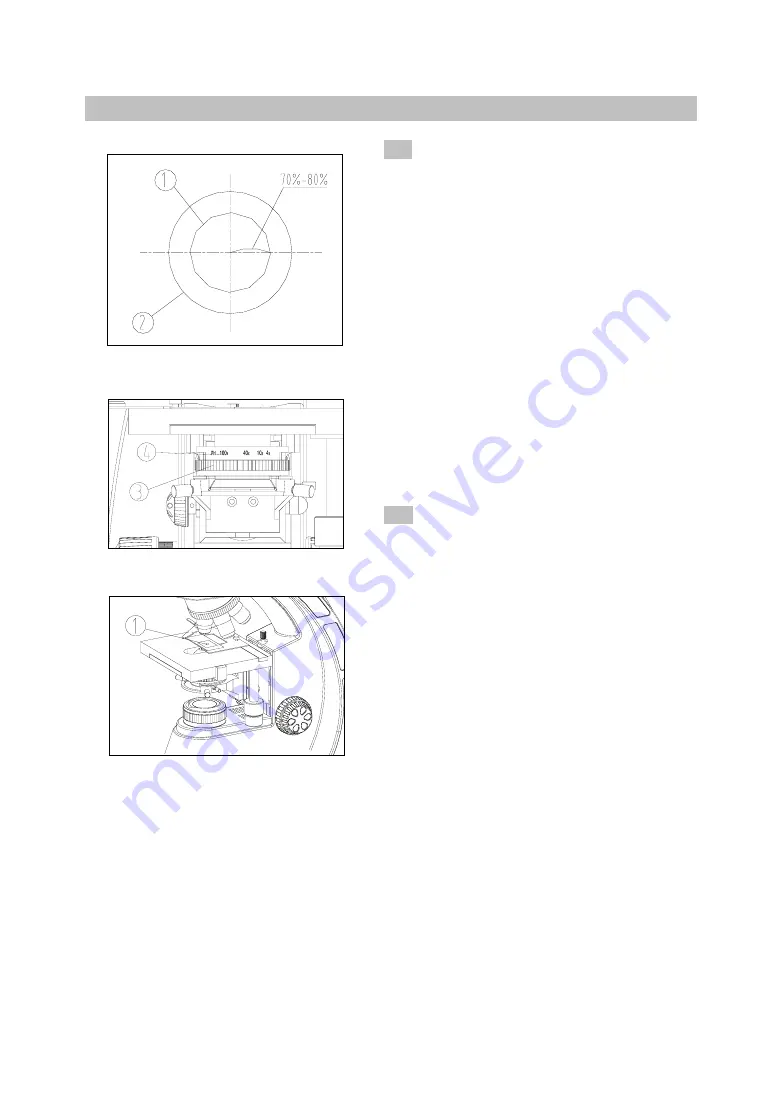
11
EX31 Series
3-11
Aperture Diaphragm
(1) The aperture diaphragm decides the
numerical aperture of the illumination system.
Only when the N.A. of illumination system is
matching with the N.A. of the objective, it can
obtain better resolution and contrast, and also
increase the depth of field.
(2) As the contrast is usually low, rotate the
diaphragm adjust ring
③
to make the arrowhead
pointed to the related magnification position on
condenser base
④
, namely, to adjust the
condenser aperture diaphragm to be 70%-80% of
the N.A. of objective. The eyepiece can be taken
off when it’s necessary to observe from the tube.
Adjust the ring
③
until see the figure as shown
in Fig. 21, to adjust the proportion (see Fig.
21&22,
①
is the image of aperture diaphragm,
②
is the edge of objective).
3-12
Use the Oil Objective (100X)
(1) Use the 4X or 10X objective to focus the
specimen.
(2) Place a drop of oil
①
on the specimen
observed (see Fig. 23).
(3) Rotate the nosepiece counterclockwise and
rotate the oil objective (100X) into the light path.
Then use the fine focusing knob to focus.
★
Make sure there is no air bubble in the oil
for fear affect the image.
A. Move the eyepiece to examine the air bubble.
Open the aperture diaphragm and field
diaphragm fully and observe the edge of the
objective from the tube (It seems round and
light).
B. Rotate nosepiece slightly and swing the oil
objective for some times to remove the air
bubble.
(4) After using, wipe the front lens with a tissue
moistened with a small amount of 3:7 mixture of
alcohol and ether or with dimethylbenzene. Wipe
off the oil on the specimen.
★
Don’t put another objective to the light
path before the oil is wiped to avoid wetting
the dry objective.
★
Too much dimethylbenzene would dissolve
the lens’s stickiness.
Fig.
21
Fig.23
Fig.
22










































